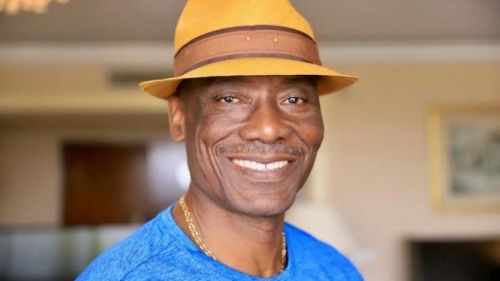Joseph Antoine Bell's Perspective on Marc Brys' Appointment: A Reflection on Football Leadership

In a recent interview with RFI, former Cameroonian goalkeeper Joseph Antoine Bell shared his thoughts on the appointment of Marc Brys as the new coach of the Cameroon national team.
Bell's perspective offers insights into the complexities of football leadership and governance, highlighting historical precedents and legal frameworks.
Bell's remarks underscore the debate surrounding Brys' appointment and the broader issue of government involvement in football affairs, particularly in light of FIFA regulations prohibiting such interference. While Bell acknowledges the constitutional mandate of Fecafoot and the regulatory framework governing football appointments, his comments also reflect a pragmatic view of coaching qualifications and the potential for success despite unconventional backgrounds.
Joseph Antoine Bell shares his thoughts on the appointment of Marc Brys in an interview with RFI: "As for the new coach, I don't know him and I don't have much to say. But I will remind you that I won two African Cups with coaches who had won nothing [...] Their CV was blank. Claude Leroy, for example, had just started a career at Grenoble and had been fired. So if we tolerated individuals before, we should tolerate this one as well."
Bell's reference to his own experiences, winning two African Cups under coaches with limited prior achievements, serves as a reminder of the unpredictability and diversity within football coaching. He suggests that past success has been achieved with coaches whose CVs were relatively blank, challenging the notion that only established figures should be considered for leadership roles.
However, Bell's stance raises questions about the balance between tradition and innovation in football management. While he advocates for tolerance and open-mindedness in evaluating coaching candidates, his comments may be interpreted as endorsing government intervention in Fecafoot matters. This stance contradicts FIFA regulations aimed at safeguarding the autonomy of football associations and preventing political interference in football affairs.
The articles governing the recruitment modalities within the Indomitable Lions provide a framework for understanding the legal parameters of football appointments in Cameroon. Article 9(1) outlines the dual avenues for recruiting coaching staff, either through contracts with Fecafoot or secondment by the State, with input from the Minister of Sports. Meanwhile, Article 4(1) assigns responsibility for coordinating national team activities to a General Coordinator appointed by the President of Fecafoot, reinforcing the federation's role in football management.
In light of Bell's remarks and the legal framework governing football appointments, there is a need for stakeholders to engage in constructive dialogue to address the current dispute. Collaboration between Fecafoot, the Ministry of Sports, and other relevant parties is essential to ensure compliance with FIFA regulations while fostering transparency and accountability in football governance.
Ultimately, the appointment of Marc Brys as the new coach of the Cameroon national team serves as a catalyst for broader discussions on leadership, governance, and the future direction of Cameroonian football. By navigating the complexities of football administration with respect for legal frameworks and adherence to international standards, stakeholders can work towards a unified and prosperous future for the sport in Cameroon.
- Details
- News Team
- Hits: 2937
Local News
- Details
- Society

Kribi II: Man Caught Allegedly Abusing Child
- News Team
- 14.Sep.2025
- Details
- Society

Back to School 2025/2026 – Spotlight on Bamenda & Nkambe
- News Team
- 08.Sep.2025
- Details
- Society

Cameroon 2025: From Kamto to Biya: Longue Longue’s political flip shocks supporters
- News Team
- 08.Sep.2025
- Details
- Society

Meiganga bus crash spotlights Cameroon’s road safety crisis
- News Team
- 05.Sep.2025
EditorialView all
- Details
- Editorial

When Power Forgets Its Limits: Reading Atanga Nji Through Ekinneh Agbaw-Ebai’s Lens
- News Team
- 17.Dec.2025
- Details
- Editorial

Robert Bourgi Turns on Paul Biya, Declares Him a Political Corpse
- News Team
- 10.Oct.2025
- Details
- Editorial

Heat in Maroua: What Biya’s Return Really Signals
- News Team
- 08.Oct.2025
- Details
- Editorial

Issa Tchiroma: Charles Mambo’s “Change Candidate” for Cameroon
- News Team
- 11.Sep.2025




